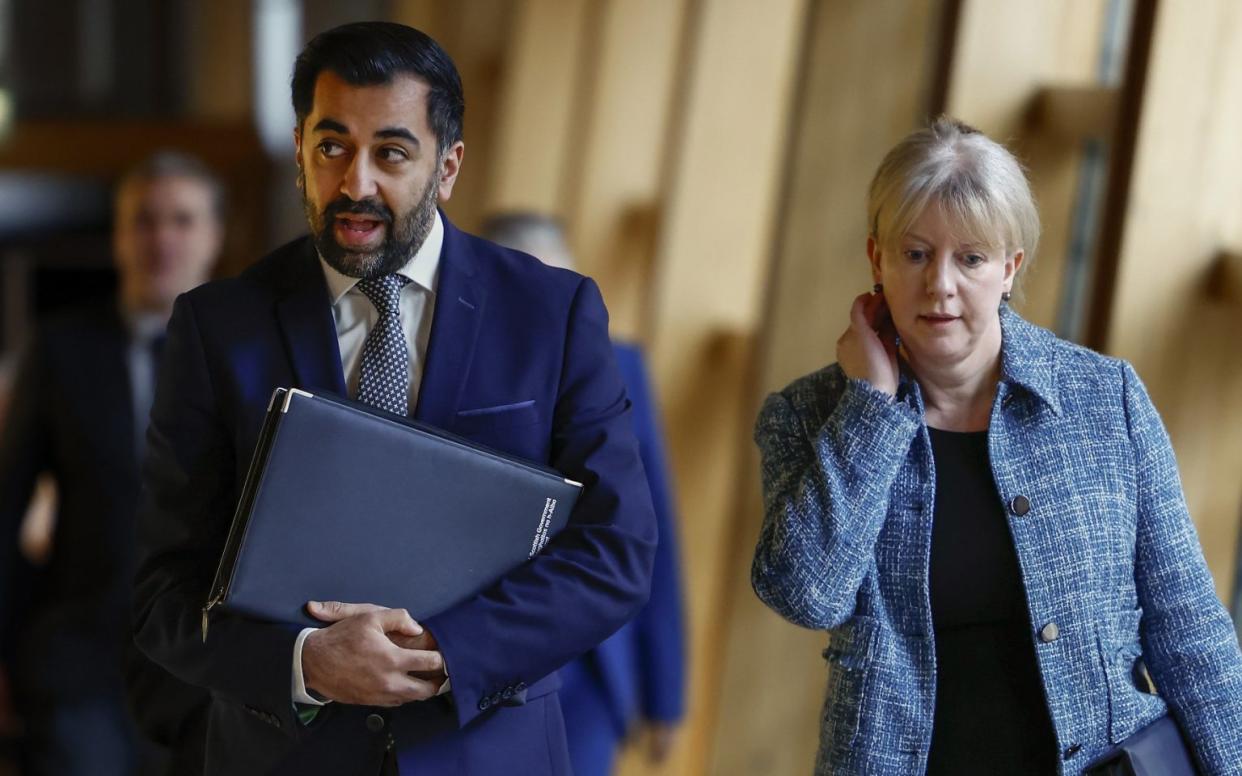Local authorities in Scotland hit out at SNP bid to force council tax freeze

- Oops!Something went wrong.Please try again later.
- Oops!Something went wrong.Please try again later.
Local authority leaders have reacted angrily to an attempt by Humza Yousaf’s government to strong-arm them into implementing his keynote pledge to freeze council tax.
The Convention of Scottish Local Authorities (Cosla) hit out at a warning by Shona Robison, the SNP finance minister, that she would refuse to pass on extra cash from Westminster unless they implemented the freeze.
In an unprecedented move, Ms Robison said a £62.7 million funding package was explicitly tied to the freeze, prompting a furious backlash from town halls across the country.
Scotland’s council leaders issued a joint statement arguing it was for them to “set their own level of council tax without sanction or financial detriment imposed by the Scottish Government”.
The criticism comes one day after Argyll and Bute Council became the first local authority to defy Ms Robison by announcing a 10 per cent council tax rise, which it said was needed to plug a £40 million shortfall in its budget.
The increase was highly embarrassing for Mr Yousaf as the freeze is his keynote pledge for helping Scottish families with the cost of living crisis.
The Telegraph disclosed earlier this month that town halls across Scotland were considering raising council tax in defiance of the First Minister.
Threat to services
Local authorities, including some run by the SNP, feared that accepting a £144 million lump sum being offered by Mr Yousaf in return for the freeze would mean deep cuts to services. The extra cash is equivalent to a five per cent council tax rise.
Ms Robison, who is overseeing her first Scottish Budget as the finance minister, attempted to win over councils by offering them an additional £67.2 million. But she confirmed the sum was “contingent on agreement to freeze council tax”.
In a statement issued following a meeting, Katie Hagmann, Cosla’s resources spokesman, said: “Council leaders were absolutely clear today that it is not appropriate for Scottish Government ministers to interfere in the democratic decision making of councils.
“Leaders also reaffirmed in the strongest possible terms the principle that it should be for individual local authorities to set their own level of council tax without sanction or financial detriment imposed by the Scottish Government.”
The SNP councillor said she was also seeking confirmation from the Scottish Government that there would be no further council tax freezes for the remainder of the current parliamentary term, which ends in 2026.
Mr Yousaf promised “the people of Scotland that, next year, your council tax will be frozen” as he delivered his keynote speech to the SNP conference in October, However, he failed to consult local authorities before making the announcement.
Some councils, including Glasgow, Aberdeenshire, Scottish Borders, North Lanarkshire and South Lanarkshire, have agreed to the freeze.
But they warned that they would be forced to make millions of pounds of cuts to public services, with SNP-run Glasgow considering cutting 172 teaching posts in the city’s schools.
Robin Currie, the leader of Argyll and Bute council, defended its decision to increase council tax by arguing it was the “responsible” decision to save public services.
It means band D properties in the area will see their annual bills increase from £1,479.20 to £1,627.12. The local authority is run by a coalition of Tory, Liberal Democrat and independent councillors.
Ms Robison said: “The Scottish Government is facing difficult choices on government spending due to budget constraints, just as councils are.
“Despite a real-terms cut to the Scottish Budget, in 2024-25 local government will receive record funding with councils’ share of the Budget increasing from 31 to 32 per cent.
“I have written to Cosla to provide as much assurance as I can around any changes to funding which may result from the UK Government’s Spring Budget.”

